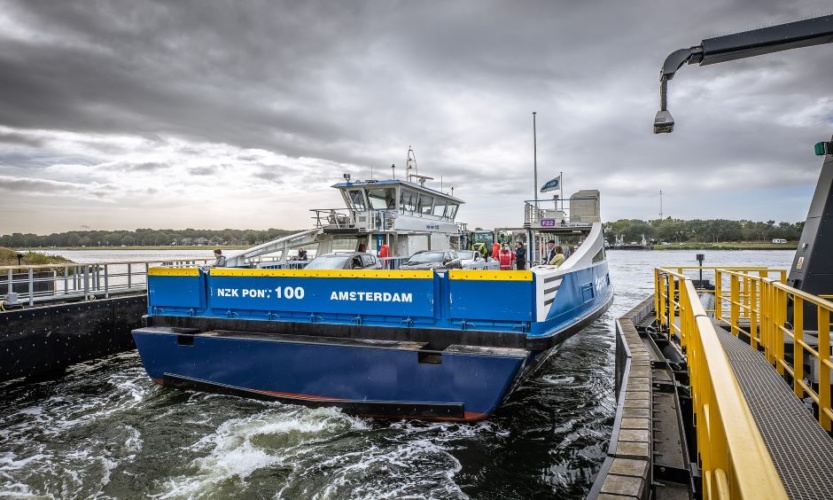
The new ferries have been ordered by Amsterdam’s public transport company, Gemeentelijk vervoerbedrijf (GVB), as it transitions toward becoming an emission-free transport company.
GVB will deploy the electric ferries on three North Sea Canal routes that transport over 350,000 cars a year. The ferries will operate day and night with a three-minute window for battery charging after each 20-minute round trip.
The contract for constructing the fully automated charging stations was awarded to BAM Infra Rail, which is part of BAM Group. To ensure safe, efficient charging and optimise battery life, the 750V DC supplied by the chargers must be unaffected by fluctuations in the power grid. ABB was approached to provide the technology to convert the AC grid voltage to a stable DC supply.
ABB delivered three ACS880 supply modules, with power conversion based on integrated-gate bipolar transistor (IGBT) technology, which ensures stable DC output with minimal grid distortion by reacting to network events and compensating for voltage drops.
The ferries, which can carry up to 400 passengers, 20 cars or four trucks, are based on a plug-in hybrid design but will normally operate on electric power from their 680kWh batteries. They will only use the generator in conditions above gale force.
“The fast-charging solution delivered by BAM and ABB is fully automated and can easily be integrated into the ferry’s timetable. Electric operation means there are no particulates or carbon dioxide emissions. When all five electric ferries are in service and the old diesel vessels are retired, we will save 800,000 litres of diesel per year, eliminating over 2,400 tonnes of carbon emissions,” Alain Asin, project manager at GVB said in a statement.
The first electric ferry entered service in in August 2021 with the remainder completing the fleet by 2023.




April 1886: the Brunkebergs tunnel
First ever example of a ground source heat pump?